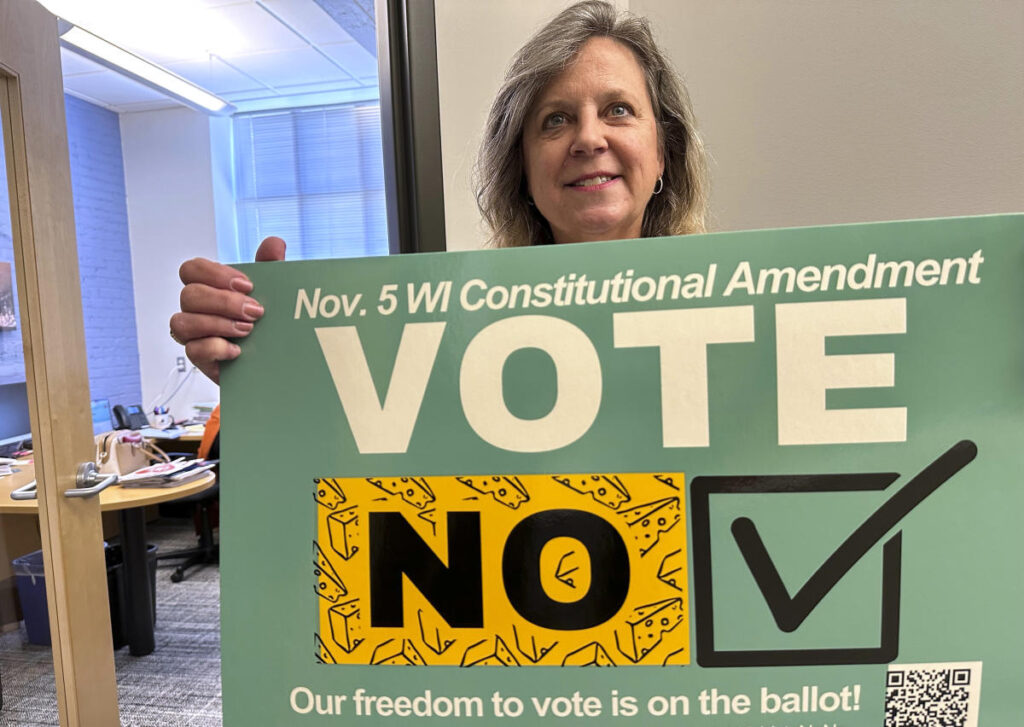In the upcoming November election, voters in Wisconsin will confront a statewide referendum regarding an amendment to the state constitution that seeks to explicitly prohibit non-U.S. citizens from voting in any election. This initiative, spearheaded by Republican lawmakers, emerges from a broader national trend; a growing number of municipalities across various states have begun allowing noncitizens to vote in local elections. Currently, states such as North Dakota, Alabama, Florida, Colorado, Ohio, and Louisiana have enacted similar measures, with similar amendments being proposed in eight other states, including Iowa, Kentucky, and Missouri. Proponents of the amendment, largely within the Republican party, assert that it is a necessary step toward securing election integrity, particularly in light of recent surges in immigration at the southern border.
Opponents, including many Democrats and voter rights advocates, argue that there is no current issue of noncitizen voting in Wisconsin, as no municipalities permit this practice. They contend that the amendment is primarily a political strategy aimed at increasing conservative voter turnout while stoking anti-immigrant sentiment. Jeff Mandell, an attorney from Law Forward, a nonprofit focused on voting rights, describes the amendment as a “solution in search of a problem,” emphasizing that instances of noncitizen voting are extremely rare. According to the Pew Research Center, of the over 25 million noncitizens residing in the U.S. in 2020, the overwhelming majority were not eligible to vote, and federal law already prohibits noncitizens from participating in federal elections. Current laws across various states thus significantly restrict noncitizen voting.
Republican voices underscore their concerns primarily citing instances of potential noncitizen voting discovered during voter registration reviews in several states. Officials from Texas, Ohio, and Alabama have reported various numbers of noncitizens being removed from voter rolls or referred for prosecution due to alleged voting. These claims bolster the Republican narrative that noncitizen voting is a looming threat, despite the absence of evidence showing widespread electoral fraud associated with noncitizens. A few municipalities in states like California, Maryland, and Vermont permit limited voting by noncitizens in specific local elections, and Republicans fear that more jurisdictions may adopt similar practices.
Under the existing framework of Wisconsin’s constitution, all U.S. citizens are considered valid electors. The proposed amendment seeks to clarify that only U.S. citizens can vote, eliminating any ambiguity regarding the voting rights of noncitizens. State Rep. Tyler August, one of the amendment’s chief sponsors, emphasized that the change is intended to solidify understanding regarding voter eligibility and has nothing to do with broader immigration or racial issues. August remains adamant that the amendment is not intended to discriminate but to affirm the right of only U.S. citizens to participate in elections, and he asserts that the measure will also galvanize Republican turnout at the polls.
For an amendment to be incorporated into the Wisconsin constitution, it needs to pass through two consecutive legislative sessions and a statewide referendum. Republicans have managed to secure passage of this measure during the last two sessions without any Democratic support. This procedural distinction highlights the partisan division surrounding the proposed amendment, with Democratic Gov. Tony Evers having no influence over the approval process.
In terms of organizational support, the Wisconsin Family Action group is the only entity that has registered in support of the amendment, while more than 30 organizations, including the American Civil Liberties Union and the League of Women Voters, have rallied against it. These opposing entities view the amendment as a detrimental move that could foster discrimination and catalyze further anti-immigrant sentiment. The coalition has argued that altering voter eligibility from “every” citizen to “only” citizens undermines voting rights for all citizens. They urge Wisconsinites to reject the amendment to preserve essential voting freedoms and protect against any possible infringements in the future.

